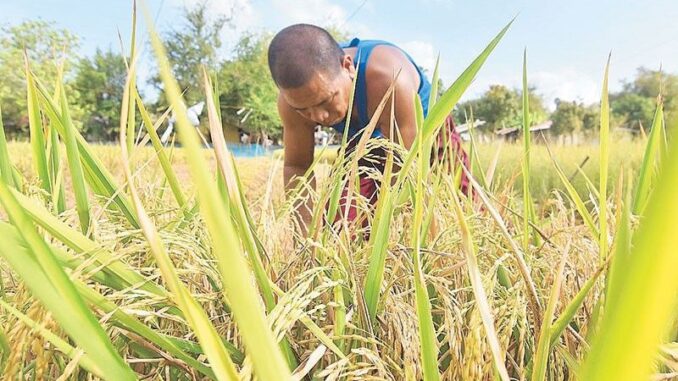
MANILA, Philippines — Lower fertilizer prices and higher yields allowed palay farmers last year to cut their production costs to a three-year low, government officials and industry players said.
The Philippine Statistics Authority earlier reported that the average cost of producing a kilo of palay or unmilled rice last year fell by 10 percent year-on-year to P13.38 from P14.98 in 2022.
Agriculture Undersecretary for rice industry development Christopher Morales attributed the decline to higher yield posted by farmers nationwide as well as a drop in fertilizer prices, a critical input in palay production.
Morales noted that urea prices last year dropped to about P1,800 per 50-kilogram bag compared to P2,400 in 2022.
Furthermore, the average palay yield last year improved, allowing production costs to be distributed across a greater volume of output, resulting in lower overall costs to farmers on a per hectare basis.
“This achievement also reflects the positive impact of government interventions, including input subsidies and the promotion of modern farming practices and mechanization, which have enhanced efficiency in rice production,” Morales told The STAR.
The average palay yield last year inched up to 4.17 metric tons per hectare from from 4.11 MT per ha in 2022, based on PSA data.
The country recorded its highest palay harvest ever last year at 20.06 million MT.
Philippine Chamber of Agriculture and Food Inc. president Danilo Fausto emphasized that the drop in average palay production cost was driven by higher yield as farmers spent nearly the same amount of input cost.
PSA data showed that total costs incurred by palay farmers on a per hectare basis grew slightly to P55,814 from P54,373 due to more expensive labor costs.
Nonetheless, Fausto recognized that state subsidies on high-yielding rice seeds and fertilizer contributed to tempering the costs incurred by farmers last year.
The average cash cost incurred by palay farmers for fertilizer last year plunged by more than a quarter to P24 per hectare from P33.
The government targets to reduce average palay production cost to below P10 per kilo through its various rice programs, including the Rice Competitiveness Enhancement Fund (RCEF).
Pundits have earlier lamented that the RCEF was unable to make a significant dent in reducing farmers’ production costs. However, some experts noted that external factors such as skyrocketing of fertilizer prices due to the Ukraine-Russia war negated the gains of the RCEF.
The government is keen on extending the RCEF until 2031 as the measure is set to expire by the end of the year. The bill seeking to extend and improve the RCEF is currently awaiting the signature of President Marcos so that it would be enacted into law.


Be the first to comment